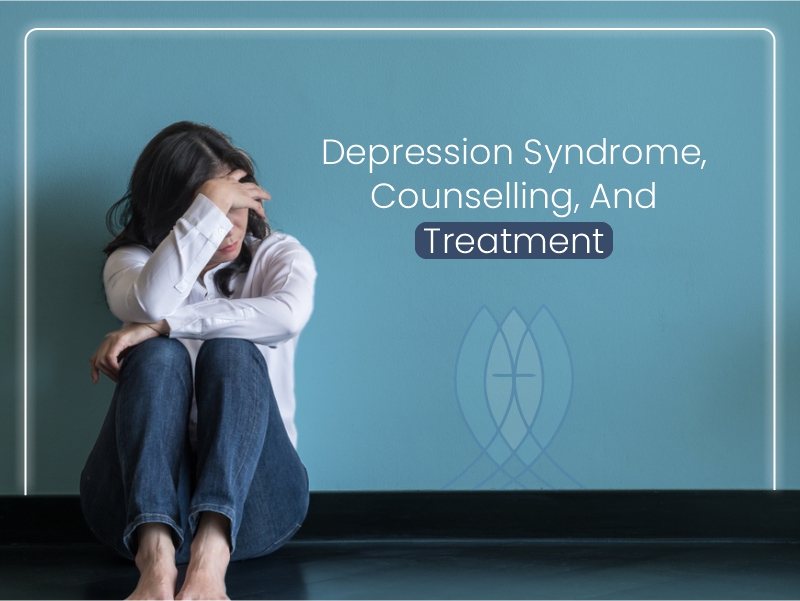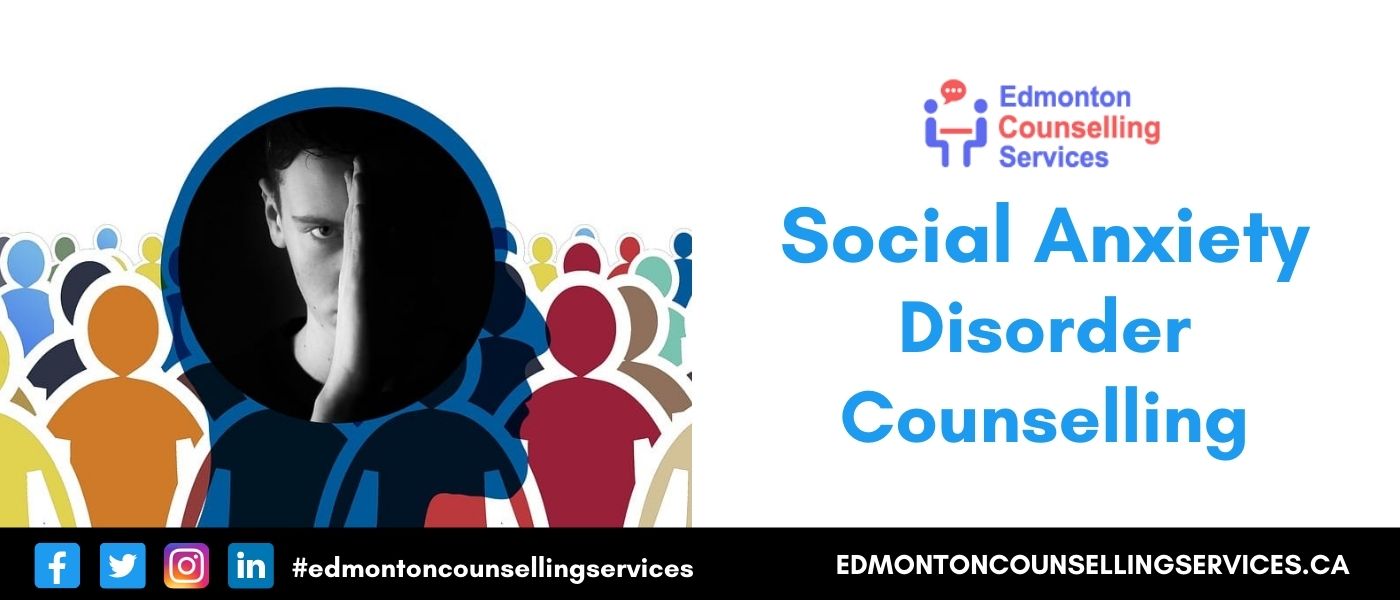Efficient Approaches in Counselling for Stress And Anxiety Problem: A Path to Healing
When facing anxiousness problems, you could really feel overloaded and unsure of where to turn. Efficient therapy approaches can pave the method for recuperation, offering you with the devices to browse your obstacles. From cognitive-behavioral strategies to mindfulness practices, each technique uses one-of-a-kind advantages. Understanding how these techniques interact can make a substantial difference in your journey. So, what are the essential elements that will guide you towards lasting adjustment?
Understanding Anxiety Conditions: An Extensive Summary
When you think of stress and anxiety disorders, it's important to identify that they encompass a series of problems defined by too much anxiety or fear. These disorders can manifest in numerous ways, including generalized anxiety disorder, panic attack, and social stress and anxiety condition. You may experience signs and symptoms like quick heartbeat, sweating, or difficulty concentrating. It prevails to feel overwhelmed, and these feelings can disrupt everyday life.Understanding the source of stress and anxiety is important - counselling for anxiety. They can originate from genetics, brain chemistry, or ecological elements. You might find that particular circumstances trigger your anxiousness, making it essential to identify these triggers
Cognitive Behavior Treatment (CBT): Reshaping Thought Patterns
Cognitive Behavior Modification (CBT) uses powerful tools for improving the idea patterns that add to anxiousness problems. With CBT, you'll discover to recognize and test unfavorable ideas that sustain your stress and anxiety. Rather of allowing anxiety determine your activities, you'll work with reframing those thoughts into even more positive, sensible ones. This process aids you damage the cycle of anxiety by altering just how you regard situations.You'll also establish coping approaches to manage stress and anxiety in real-time. By exercising exposure strategies, you'll gradually encounter your concerns in a regulated fashion, reducing their power over you. Furthermore, you'll acquire abilities to problem-solve and navigate difficult circumstances more effectively.CBT is structured and goal-oriented, which means you'll see progress as you apply what you learn in treatment to your day-to-day live. With commitment and method, you can substantially reduce your anxiety and improve your total well-being.
Mindfulness and Relaxation Techniques: Growing Present-Moment Understanding
Mindfulness and relaxation methods assist you grow present-moment recognition, allowing you to take care of stress and anxiety a lot more efficiently. By concentrating on the present moment, you can break cost-free from the cycle of fear and rumination that often gas stress and anxiety. Beginning by exercising deep breathing exercises. Inhale slowly through your nose, hold for a moment, then breathe out with your mouth. This straightforward technique can calm your mind and body.Engage in mindfulness meditation by setting apart a couple of mins every day to observe your ideas without judgment. Pay interest to your breath, sensations, and the sounds around you. You may additionally discover value in modern muscle leisure, where you tense and loosen up each muscle mass team, promoting psychological and physical ease.Incorporating these methods into your day-to-day regimen can produce a higher sense of control, reduce anxiety symptoms, and enhance your overall health. Bear in mind, uniformity is vital to experiencing the advantages.
Direct Exposure Treatment: Dealing With Concerns Progressively
Direct exposure therapy assists you face your worries slowly, permitting you to develop self-confidence gradually. By utilizing gradual direct exposure strategies, you can gradually face what makes you distressed while creating effective coping mechanisms. This process not only reduces your anxiety but additionally empowers you to manage anxiousness more effectively.
Gradual Exposure Techniques
You can successfully decrease stress and anxiety and restore control over your life when you confront your anxieties slowly. Gradual exposure strategies entail facing your anxieties tip by action, starting with much less daunting scenarios. You may begin by imagining the been afraid circumstance, then proceed to checking out pictures or video clips connected to it. At some point, you can exercise confronting the anxiety in actual life, but just when you feel prepared. This method enables you to build confidence as you relocate via each phase. Bear in mind to pace yourself; rushing can boost anxiousness. Commemorate tiny triumphes in the process, as each progression empowers you. By continually using these strategies, you'll locate that your fears start to lose their grasp on your mind.

Building Coping Mechanisms
Building effective coping systems is important for managing anxiety, especially as you face your fears gradually via direct exposure treatment. Begin by determining your certain concerns and breaking them down into convenient actions. This means, you can progressively face each worry without becoming overwhelmed. For example, if you have a hard time with social circumstances, begin by practicing small interactions, like greeting a neighbor.Alongside steady direct exposure, integrate relaxation techniques such as deep breathing or mindfulness to relax your mind before dealing with triggers. Maintain a journal to track your progression and commemorate small victories. Surround on your own with supportive close friends or a therapist who can direct you. Bear in mind, it's a trip-- persistence and determination will reinforce your coping devices, bring about higher strength versus stress and anxiety.
Helpful Counseling: Structure Trust and Relationship
To efficiently sustain someone with anxiety, developing count on and connection is important from the extremely first session. You'll wish to develop a why not try these out risk-free area where they really feel comfortable revealing their ideas and feelings without judgment. Active listening is essential; program genuine rate of interest in what they share. Acknowledge their sensations and confirm their experiences. It is very important to be compassionate, as this helps build a connection and urges openness.Be regular in your strategy and maintain discretion to more reinforce that depend on. Use open body movement and make eye get in touch with to share your attentiveness. Remember, your persistence goes a long means; structure connection requires time, and it's essential to value their speed. By fostering this supportive environment, you'll empower them to engage more completely in the restorative process, making it simpler for them to discover their anxiety and pursue recovery.
Group Therapy: Shared Experiences and Collective Recovery
Group treatment can be a powerful tool for those handling anxiety disorders, as it allows people to share their experiences and locate solace in the understanding of others. In this helpful atmosphere, you can reveal your sensations without concern of judgment. Hearing others' stories can normalize your own experiences, making you feel less alone in your struggle.Participating in team therapy helps you create coping methods with shared understanding and understandings. As you pay attention to others, you may find new means to tackle your anxiousness that you had not considered before.Moreover, the collective healing that takes place in these sessions can foster a sense of neighborhood, advising you that you're not encountering your difficulties alone.Building connections with others that comprehend your struggle can boost your confidence and inspiration to confront your stress and anxiety. Team treatment produces a room where growth and healing end up being a common journey, empowering you to take actions towards recovery.
Integrating Way Of Living Modifications: Holistic Strategies to Stress And Anxiety Management
While treatment offers crucial assistance, integrating way of life adjustments can substantially enhance your capacity to manage anxiety - counselling for anxiety. Begin by incorporating routine exercise Clicking Here right into your regimen. Exercise launches endorphins, which can elevate your state of mind and decrease stress and anxiety. Next, pay interest to your diet. Taking in a balanced diet abundant in fruits, veggies, and whole grains can positively affect your psychological well-being. Don't forget regarding sleep-- go for 7-9 hours per night, as quality rest is important for psychological regulation.Mindfulness methods, such as reflection or yoga, can also assist you stay grounded and present. Consider alloting time every day to practice these methods. Limitation caffeine and alcohol consumption, as they can exacerbate anxiety signs. By making these holistic modifications, you produce a more powerful structure for taking care of stress and anxiety, complementing the benefits gained from treatment. Keep in mind, every small step trust your course to healing

Often Asked Concerns
What Are the Usual Physical Signs And Symptoms of Stress And Anxiety Disorders?
Common physical symptoms of stress and anxiety problems consist of rapid heart rate, shortness of breath, muscular tissue stress, sweating, and headaches. You might likewise experience fatigue, wooziness, or intestinal problems, which can additionally complicate your day-to-day live.
The Length Of Time Does Therapy for Anxiousness Typically Take?

Can Anxiety Conditions Be Entirely Treated?
While stress and anxiety disorders can not constantly be entirely healed, you can manage your signs successfully. With the appropriate methods and assistance, you'll locate ways to minimize anxiety, improve your well-being, and lead a meeting life.
What Should I Do in an Anxiety attack?
Throughout a panic strike, concentrate on your breathing. Breathe in deeply through your nose, hold for a moment, after that breathe out slowly. Ground yourself by calling things around you, and remind yourself it will certainly pass.
Exist Medications for Stress And Anxiety Problems?
Yes, there are a number of medications for anxiousness disorders, including antidepressants and benzodiazepines. You should speak with a health care professional to locate the ideal treatment strategy tailored to your specific demands and scenarios for the very best outcomes. When you believe about anxiousness conditions, it's vital to identify that visit homepage they encompass an array of conditions identified by excessive anxiety or concern. These disorders can materialize in various means, including generalised stress and anxiety problem, panic disorder, and social anxiousness disorder. Structure reliable coping systems is important for managing anxiousness, especially as you encounter your worries progressively through direct exposure treatment. Group treatment can be an effective tool for those dealing with stress and anxiety problems, as it allows people to share their experiences and locate relief in the understanding of others. As you listen to others, you may uncover brand-new ways to tackle your stress and anxiety that you had not considered before.Moreover, the collective recovery that takes place in these sessions can foster a feeling of community, reminding you that you're not facing your difficulties alone.Building links with others that understand your struggle can increase your confidence and inspiration to challenge your anxiousness.